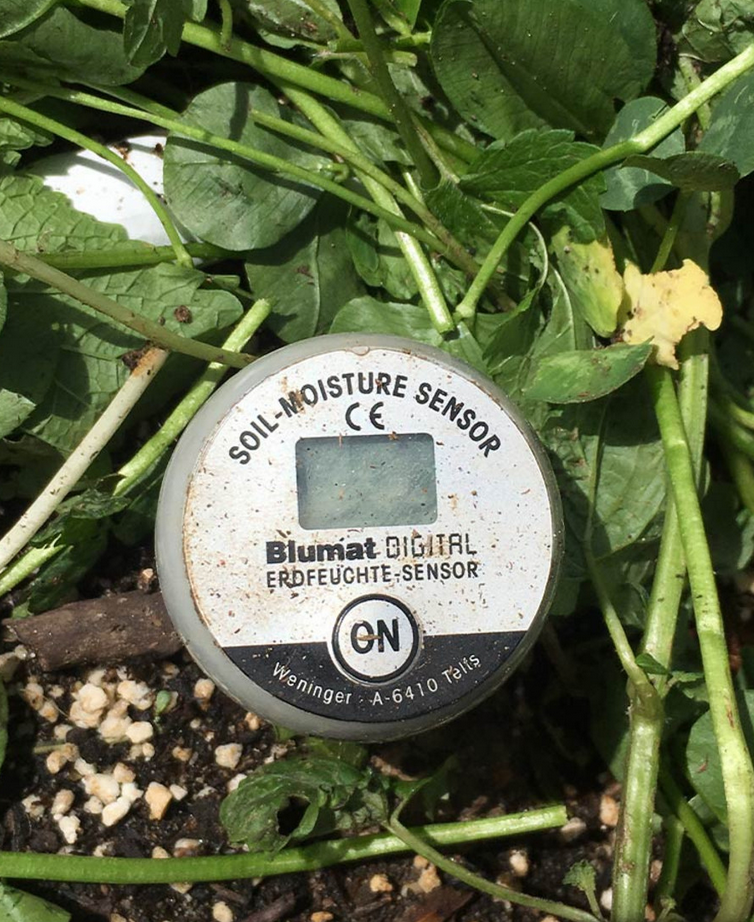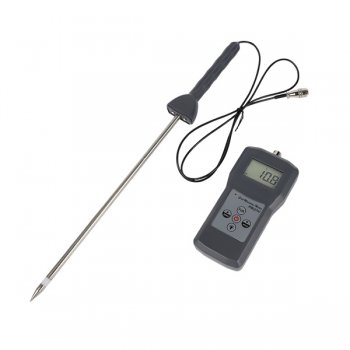Moisture Meter Buying Guide: What to Look for in High-Quality Instruments
Moisture Meter Buying Guide: What to Look for in High-Quality Instruments
Blog Article
The Ultimate Overview to Moisture Meters: A Comprehensive Overview and How They Can Save You Cash
In the realm of building upkeep, construction, and different markets, the value of precisely measuring wetness degrees can not be overemphasized. Dampness meters act as vital tools in discovering and monitoring moisture web content in products, assisting in preventing pricey problems and making certain the quality of products. Understanding the subtleties of various sorts of wetness meters, their applications, and the prospective cost-saving benefits they supply can be a game-changer for companies and specialists alike. Discovering exactly how these devices can not just improve procedures however additionally add to economic savings is a journey worth starting.
Types of Moisture Meters
One common type is the pin-type moisture meter, which measures the electrical resistance in between two pins inserted into a material. Pinless moisture meters, on the other hand, usage electro-magnetic sensing unit plates to check a larger area without triggering damages to the material's surface.
Furthermore, there are also specialized wetness meters created for specific materials like grain, hay, or dirt. These meters offer precise dampness analyses customized to the unique properties of the material being evaluated. Infrared wetness meters gauge the thermal buildings of a material to establish its moisture material non-invasively, making them beneficial for applications where pin or pinless meters may not be appropriate. Recognizing the various types of wetness meters available can assist sectors choose the most ideal tool for their particular wetness dimension demands.

Advantages of Making Use Of Moisture Meters

In addition, making use of wetness meters can lead to increased energy effectiveness. By identifying locations with high moisture levels, such as leaks or inadequate insulation, changes can be made to improve power preservation and reduce utility costs. In agricultural setups, dampness meters play a critical function in enhancing crop returns by enabling farmers to keep an eye on soil dampness levels and make informed irrigation decisions. Overall, the advantages of using wetness meters cover throughout numerous markets, giving economical solutions and advertising far better quality assurance techniques.
Just How to Choose the Right Moisture Meter
Choosing the ideal moisture meter entails considering essential elements such as material compatibility, measurement variety, and calibration accuracy. When choosing a moisture meter, it's necessary to make certain that the meter is appropriate for the specific material you will be screening. Different materials have varying electrical residential properties that can influence moisture analyses, so click site picking a meter developed for your material is essential for accurate outcomes. In addition, think about the dimension variety of the moisture meter. Guarantee that the meter can spot moisture levels within the variety needed for your applications. Calibration precision is another essential element to remember (Moisture Meter). Go with a dampness meter with reputable calibration to ensure constant and exact analyses. Some meters might need routine calibration modifications, so comprehending the calibration process is crucial. By meticulously assessing these elements, you can select a wetness meter that satisfies your requirements and gives precise dampness measurements for your jobs.
Appropriate Methods for Moisture Meter Usage
To make certain exact dampness readings and make the most of the efficiency of a wetness meter, using proper strategies is essential. When making use of a pin-type moisture meter, put the pins or probes into the product being evaluated until they make full call. Guarantee the pins are perpendicular to the surface to get one of the most precise analysis. For pinless wetness meters, hold the tool flat against the material and relocate it gradually to cover the whole location for an average analysis. It's essential to calibrate the wetness meter according to the product being evaluated to improve precision. Take multiple readings throughout the surface area and typical them out for an extra trusted outcome. Furthermore, guarantee that the product being examined is accommodated to the setting to avoid manipulated readings. Regular upkeep of the dampness meter, such as cleaning up the pins or sensing unit, is also essential to make certain regular and precise readings. By following these appropriate strategies, users can count on their dampness meter to provide trustworthy dampness degrees, assisting in protecting against pricey damages or making website here sure high quality in numerous applications.

Expense Cost Savings With Moisture Meter Applications
Exactly how can the strategic application of moisture meters bring about significant cost savings across various industries? Dampness meters play a vital duty in expense savings by preventing possible damages and ensuring quality assurance in different sectors. In the agriculture sector, moisture meters help in identifying the optimum time for gathering plants, protecting against excess or over-drying moisture that can influence the end product's quality. This exact monitoring helps farmers stay clear of unnecessary losses and maximize their yield.

Furthermore, in the food processing industry, moisture meters are essential for keeping track of product high quality wikipedia reference and making certain conformity with security guidelines. By precisely determining wetness content in food products, makers can protect against wasting, preserve freshness, and reduce waste, resulting in substantial price savings. In general, the critical application of dampness meters is a useful investment that can lead to significant price reductions and improved performance across various sectors.
Final Thought
In final thought, moisture meters are beneficial devices for gauging and spotting dampness degrees in various products. By utilizing the appropriate wetness meter and following correct strategies, individuals can effectively protect against expensive problems brought on by excess moisture. Purchasing a quality moisture meter can result in substantial expense financial savings over time by identifying prospective concerns early and enabling punctual remediation. Inevitably, wetness meters are crucial instruments for keeping the integrity and long life of structures and materials.
Dampness meters serve as vital devices in finding and keeping track of moisture content in materials, helping in protecting against pricey problems and ensuring the high quality of products. Infrared moisture meters gauge the thermal buildings of a material to identify its moisture web content non-invasively, making them valuable for applications where pin or pinless meters might not be appropriate.Wetness meters provide indispensable advantages in precisely checking and evaluating moisture degrees in diverse materials and settings. In farming setups, dampness meters play a vital role in enhancing crop returns by making it possible for farmers to monitor soil dampness degrees and make notified irrigation choices.In verdict, dampness meters are useful devices for measuring and identifying dampness degrees in different products.
Report this page